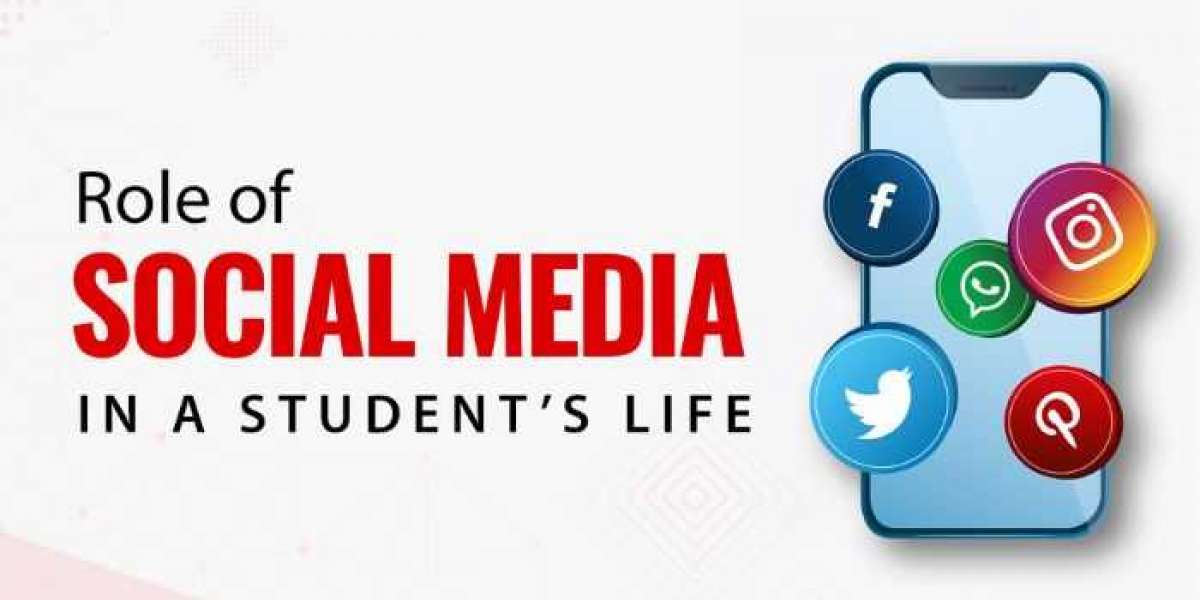In the last decade, social media has become an integral part of modern society, transforming the way we communicate, share information, and interact with others. Among those profoundly affected by this digital revolution are students. With the widespread use of platforms like Facebook, Instagram, Twitter, TikTok, and Snapchat, students find themselves deeply immersed in a world that has both positive and negative consequences on their lives. This article delves into the impact of social media on student life, analyzing its effects on academics, mental health, social relationships, and overall well-being.
- The Academic Balancing Act:
One of the most significant challenges students face due to social media is maintaining a balance between academic responsibilities and the allure of the online world. While social media can offer valuable resources for research and networking, it also poses a significant distraction. The constant notifications, entertainment, and FOMO (fear of missing out) can lead to decreased productivity, poor time management, and a decline in academic performance.
To combat these issues, students need to develop self-discipline and set boundaries for social media usage during study hours. Additionally, educators and parents play a crucial role in promoting digital literacy and time management skills to ensure that students harness the positive aspects of social media without compromising their education.
- The Mental Health Struggle:
Social media platforms provide a platform for self-expression and connection, but they can also contribute to mental health issues among students. The pressure to present a perfect life, fueled by the carefully curated posts of others, can lead to feelings of inadequacy, anxiety, and depression. Cyberbullying is another growing concern, with students facing online harassment, which can have severe and lasting impacts on their mental well-being.
To combat these negative effects, fostering open conversations about mental health and the potential pitfalls of social media is vital. Encouraging students to develop a healthy relationship with social media, emphasizing self-acceptance, and providing access to mental health resources can create a supportive environment that mitigates the detrimental impact of social media.
- The Evolution of Social Relationships:
Social media has revolutionized how students build and maintain relationships. On one hand, it enables them to connect with friends, family, and peers from diverse backgrounds, transcending geographical barriers. Social media also facilitates collaboration, knowledge sharing, and group projects, enhancing the learning experience.
Conversely, an over-reliance on social media can lead to a decline in face-to-face interactions, which are vital for developing essential social skills. The digital nature of communication can sometimes lead to misunderstandings and misinterpretations, creating rifts between students.
Educational institutions can play a role in addressing this issue by incorporating social and emotional learning (SEL) programs that promote effective communication, empathy, and active listening. Encouraging students to strike a balance between online and offline interactions will help them develop meaningful and authentic relationships.
- The Impact on Well-being:
Sleep disruption is one of the most significant concerns related to social media use among students. The constant access to screens, especially before bedtime, can lead to irregular sleep patterns and sleep deprivation. Lack of quality sleep can impact concentration, memory, and overall physical health, affecting academic performance.
Incorporating digital wellness programs and raising awareness about the importance of sleep hygiene can help students develop healthier online habits and improve their overall well-being.
Conclusion:
Social media has undoubtedly transformed student life in multifaceted ways. While it offers unprecedented opportunities for communication, learning, and self-expression, it also presents challenges that can adversely affect academics, mental health, social relationships, and overall well-being.
To maximize the positive impact of social media and minimize the negatives, it is crucial for students, educators, parents, and policymakers to work together. Promoting digital literacy, fostering open dialogues about mental health, emphasizing the importance of real-life connections, and encouraging responsible social media usage will empower students to navigate the digital landscape successfully and thrive in their academic journey and beyond.





